I STARTED WORKING AT CHUCK E. CHEESE’S Pizza Time Theatre in Albuquerque, New Mexico when I was 14 years old, mainly because they were the only place in town that would hire 14-year-olds. All new employees got busboy duty, and every busboy looked wistfully to the day that he could graduate to kitchen work.
MTV had embedded itself into the pop culture conversation at this point. We Luddites without cable at home were left out, unless we could stay up late enough to see Friday Night Videos on NBC. While I didn’t have cable at home and I wasn’t allowed to stay up late enough, I did have Chuck E. Cheese’s. One room in the restaurant contained dim booths and TVs on the walls; we unofficially called it “the MTV room” because that’s what was on every screen. I would elongate my time cleaning those tables in order to stay current on Corey Hart, Billy Ocean, and Bryan Adams. The Firm was “Radioactive.” Phil Collins crooned “One More Night.” Madonna slowed way down for “Crazy For You.” People continually mistook the title of Springsteen’s “Dancing in the Dark” to be “This Gun’s For Hire.”
Besides the music videos, the only other thing that made my shifts bearable was the manager, Lois, a platinum-haired Marilyn Monroe lookalike who wore skirts, black stockings, and high heels; my friends used to come in to play arcade games, always trying to schedule such visits for when Lois would be working. But more than just her looks was a sense of otherness, a sense that she didn’t belong there with the rest of us. She spoke in a voice sanded with the earliest hint of cigarette huskiness; she smiled and I felt like still I had so much to learn about the world.
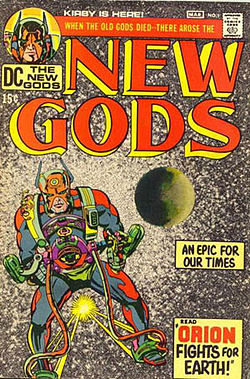 Meanwhile, in my regular life, I started writing a novel. It was a mishmash of everything I found cool at the time: X-Men and New Gods comic books, Tolkien, science fiction movies. It was called Caracas (having nothing to do with the capital of Venezuela). It was set in a dystopian future – before dystopian futures were cool – a post-apocalyptic wasteland where science had died off and magic had reasserted itself. When I wrote “The End” at the bottom of page 97, I felt a previously unknown sense of accomplishment. Those hand-printed pages in a soft yellow binder seemed to validate my entire life.
Meanwhile, in my regular life, I started writing a novel. It was a mishmash of everything I found cool at the time: X-Men and New Gods comic books, Tolkien, science fiction movies. It was called Caracas (having nothing to do with the capital of Venezuela). It was set in a dystopian future – before dystopian futures were cool – a post-apocalyptic wasteland where science had died off and magic had reasserted itself. When I wrote “The End” at the bottom of page 97, I felt a previously unknown sense of accomplishment. Those hand-printed pages in a soft yellow binder seemed to validate my entire life.
Word got around my limited sphere of friends and suddenly everyone wanted to read it, since I’d named all the major characters after us – a cyborg, a Cyclops, an evil wizard, a Han Solo-style badass. My English teacher, Mr. Bosley, gave me extra credit just for crossing the finish line. His critique of the story itself was both tough and kind; “some of the action verges on pornography” is a comment that still makes me smile.
Our class was in the school library one day when fluffy-haired Valerie approached my study carrel, wearing tight Jordache jeans and a purple bandanna for a belt.
“Hey, Kevin. I’d love to read your book.”
“Uh, sure,” I muttered. This was more words than had ever passed between us up to that point. She remained there in front of me, my eyes at bandanna level.
I pointed to the sticker on her binder. “You like Katrina and the Waves?”
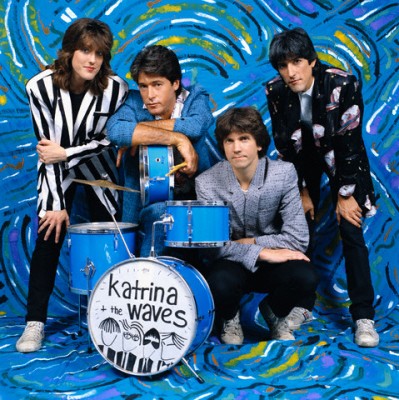 She said, “Oh my god, they’re a-maze-ing. Have you seen the video for ‘Walking On Sunshine’? It’s the best video of all time!”
She said, “Oh my god, they’re a-maze-ing. Have you seen the video for ‘Walking On Sunshine’? It’s the best video of all time!”
Not only had I seen it, I pretty much knew it by heart—Katrina bounced through dreary London in her red sneakers. The end. I hated that song, but I recounted the whole three-minute video – the band in their gray trenchcoats, the duck pond, the faux-concert at the end. Valerie blinked at me with starry eyes.
She read Caracas in a weekend, handing it back to me in English class with a piece of binder paper stuck in the front, the following message in looping pink ink:
I loved this and I don’t normally even like science fiction. Maybe if you write a sequel you could put me in it. Maybe you could put me with you (hint, hint).
The Han Solo badass was named Kevin. Of course I could.
I spent the next two weeks writing the sequel (Escape From Caracas) in a feverish spurt. I’d go to the restaurant on my days off, drink a couple gallons of New Coke, and write in the MTV room. All that was missing was an ashtray full of cigarette butts to complete the image of Serious Author.
Every time “Walking On Sunshine” came on – and it came on probably every hour – I knew Valerie was seeing it too, that we were somehow linked for those three minutes.
I’m walking on sunshine
And don’t it feel good!
When Lois saw me hunched over my papers, she’d say things like, “That’s so cool you’re writing a book,” and, “I used to want to be a writer,” and, “I’d love to go out with a smart guy who knows about books.” For about three ridiculous seconds, I entertained the thought that she might be flirting with me. She stuck around for any Tina Turner video; I pretended to concentrate on my writing while Lois’s skirt subtly swayed a few feet away.
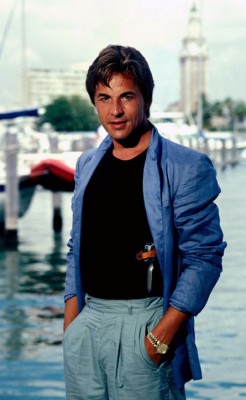 I passed Escape From Caracas – 72 pages, soft black binder – to Valerie before any of the other characters got to read it. This one involved not only all the elements from the first book, but also time travel, ending with “Valerie” and “Kevin” together.
I passed Escape From Caracas – 72 pages, soft black binder – to Valerie before any of the other characters got to read it. This one involved not only all the elements from the first book, but also time travel, ending with “Valerie” and “Kevin” together.
I don’t know if she became my girlfriend after that. There wasn’t a certificate, or an official proclamation. We talked on the phone every night. I started moussing my hair. I went to watch her track meet at another high school across town. I took her on a real date, once, to see Ladyhawke; the specialness of the occasion called for my white suit and black T-shirt combo, a la Don Johnson.
We had a routine of squeezing in as much time after school together as possible. We’d go to the deserted park on our way home. She hung upside down from the jungle gym while I thought it would be impressive to show a girl how high I could go on a swing. Or we’d walk through the mall, browsing B. Dalton and Spencer Gifts, listening to muzak versions of hit songs; it seemed every moment of our lives back then had a soundtrack under it. In another popular video, Foreigner and a backup choir sang “I Want To Know What Love Is.” But I already knew.
When I wasn’t with Valerie, or at work, I was with my friends Jon and Scott. Jon drove us to the record store in his VW Beetle, where in one moment of weakness I bought the “Walking On Sunshine” cassette single. I thought the two of them would understand – Jon wore black fingerless gloves like Billy Idol, but he also liked Huey Lewis & The News; Scott had a Supertramp T-shirt and knew the lyrics to Prince songs. But no. They mercilessly serenaded me with a falsetto version of Katrina while we stuffed ourselves at the 29 Cent Hamburger Stand.
Jon had MTV at his house, so we often lurked in the cold, dim garage-cum-rec room on weekends, absorbing hours of videos, complete with air guitar and debates about the hottest woman in music: Madonna, Lita Ford, or Sheena Easton? Jon showed off his perfect Billy Idol sneer while he sang along with “Rebel Yell.” We appreciated the bands that used their videos to tell actual stories, rather than just showing a concert performance – or worse, lip-synching on stage in an empty room. During commercials or “pussy” videos, I’d be hammered with detailed questions about how far my relationship with Valerie had progressed. When – not if – Katrina came on, look out.
Valerie came to Chuck E. Cheese’s one night even though I’d asked her not to. At least I had the presence of mind to ditch my red plastic hat, though I still wore a yellow and brown polyester clown suit. She played video games in the arcade and ate a personal pizza in the MTV room. I told myself that if a certain video came on while she was there, then Valerie was “The One” and we were meant to be together.
I’d drift by, picking up snippets of the Eurythmics or ZZ Top. And then that uptempo beat started. I was walking on sunshine, and, yes, it felt good.
Inspired, I wrote a third book: Return To Caracas, with my cassette single as the background music. This time “Valerie” would be the star of the show. The happy ending of my last book was interrupted when her character got powers from an ancient, evil spirit. She wreaked havoc all over the world, defeated our heroes (who used more time travel shenanigans in order to stop her), until she was finally saved by love.
63 pages, hard blue binder. My masterpiece ruined my life.
Valerie always wore a tiny gold cross on a chain, but to me it was nothing more than a piece of jewelry – it could’ve just as well been a Star of David or the Eye of Sauron. Religion had never come up in conversation; I don’t even remember her mentioning going to church. Her mother somehow got ahold of my book (why, Val, why?) and found it Satanic.
A switch had been flipped in our lives. Valerie treated me like a casual acquaintance at school. Our afternoon park stayed silent and empty (I know because I checked). She stopped calling at night, and I didn’t dare call her in case you-know-who answered. I put a certain cassette in the back of a drawer.
My mood was perpetually grim. I changed the subject when my friends asked for relationship updates. I changed the subject when my friends asked about the third book in my trilogy. My soul mirrored bleak London, only without the peppy lyrics and red shoes. “Walking On Sunshine” played at work to mock me.
Now I don’t want you back for the weekend
Not back for a day
I said, baby, I just want you back
And I want you to stay
I hated MTV.
When Mr. Bosley asked when he would get to read the conclusion to my trilogy, I poured my heart out to him in the teacher parking lot. He said, “Let me see what I can do.” That night, he called Valerie’s house. The next day he kept me after class and said, “I don’t know what you wrote in there, but you sure got under her mother’s skin. She even raked me over the coals for accepting material like that in class.” The bottom line, though, was that I’d be getting my book back.
On the last day of school, Valerie returned the blue binder. Along with it, I got the following message in my yearbook:
Dear Kevin,
Sorry it didn’t work out with us. I think your [sic] a super good writer but I don’t know why you had to make me evil. – Valerie.
Katrina and the Waves faded out of MTV rotation, never to return. I left my job (and Lois) soon after, to move on to a new life in California. One of the last videos on my last night was Don Henley’s black-and-white “The Boys of Summer.” Maybe there were ten more videos after it, but let’s imagine it as the final one, these lyrics playing in a slow motion montage as I walked out the restaurant doors :
A little voice inside my head said,
Don’t look back, you can never look back.”
I thought I knew what love was
But did I know?
Those days are gone forever
I should just let them go.

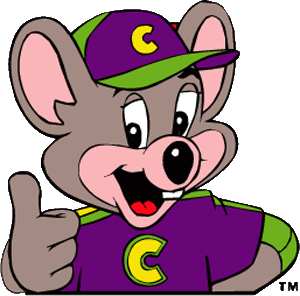
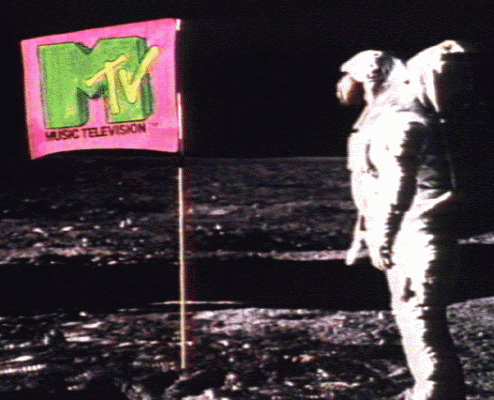


Pingback: Where to Read (and Submit) Music Writing on the Web :: Midlife Mixtape